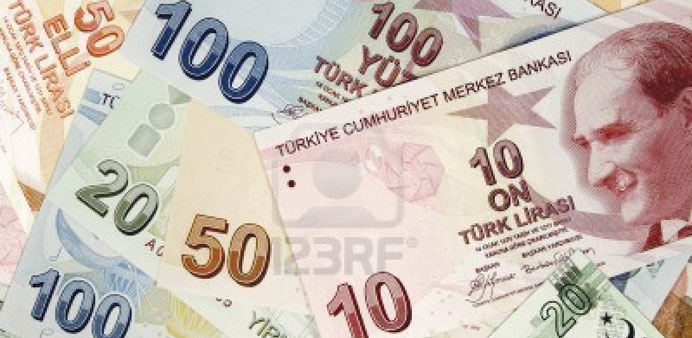The Indian rupee fell to a record low, Indonesian markets tumbled and Turkey raised a key interest rate to halt a slide in its currency as turmoil in emerging markets deepened yesterday in anticipation of reduced US monetary stimulus.
Global investors had flocked to developing economies in search of higher returns while interest rates in most advanced countries were near zero.
Some of that footloose money is taking flight now that US interest rates are rising in advance of a scaling back by the Federal Reserve of the huge bond purchases it has been making to spur the US economy. The Fed’s ‘tapering” could begin as early as next month.
Emerging markets with shaky economic fundamentals that are dependent on foreign capital have borne the brunt of the sell-off.
In Indonesia, the rupiah fell 2% to 10,700 to the dollar, its lowest level since April 30, 2009, while the Jakarta benchmark share index — which at one point plunged 5.8% — shed 3.2% for the day.
Southeast Asia’s largest economy spooked markets on Friday by reporting a wider-than-expected deficit on its current account deficit, the broadest measure of trade and payments.
Josua Pardede, an economist at Bank Internasional Indonesia in Jakarta, said Bank Indonesia (BI), the central bank, may have to raise the rate on its overnight deposit facility, or FASBI.
“The fastest solution to calm the market is the FASBI,” Pardede said.
Minutes of the Federal Reserve’s July meeting, due out today, could give clues on whether the US central bank is likely to start trimming its monthly bond purchases next month.
Markets have been unimpressed by the steps India has taken to reduce pressure on its current account. These include a ban on the duty-free import of flat-screen TVs and an easing of rules governing investment in Indian shares and bonds by non-resident Indians.
Turkey’s central bank, by contrast, surprised the market by raising its overnight lending rate for the second month in a row.
It said it could take more steps if needed and would stick to its policy stance until inflation — which hit 9% in July — fell towards its medium-term target of 5%.
Like Indonesia and India, Turkey has a gaping current account deficit — at around 7% of annual output — and depends on foreign inflows to fill the gap.
Raising interest rates makes lira assets more attractive to foreign investors, supporting the currency, but could also crimp growth, something Prime Minister Tayyip Erdogan’s government is eager to avoid ahead of an election cycle starting next year.
The Turkish lira firmed after the rate rise.
“The central bank is trying still to keep the lira’s head below the parapet, keep lira depreciation in the middle of the pack of emerging markets forex, while still focused on the uncertain outlook for growth,” said Standard Bank economist Timothy Ash.
The lira is down 8.7% so far this year and is well above record lows touched in July. By contrast, the rupee, South African rand and Brazilian real have lost 14-17% against the dollar this year.
Neil Shearing with Capital Economics, a London consultancy, said there were reasons to believe that some emerging market currencies might not have much further to fall.
Currencies are notoriously difficult to forecast, Shearing said in a note. “Even so, from an economic perspective, it seems that in several countries the bulk of adjustment in currencies that was needed to restore external competitiveness may now have taken place.” he wrote.

